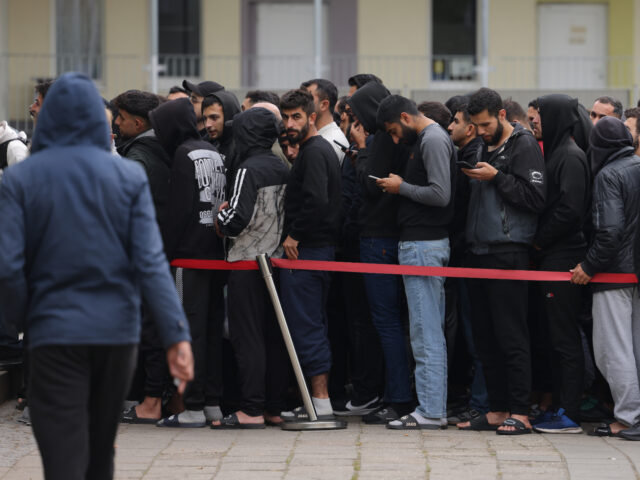A majority of Germans believe their country reached its limit of refugees, as the number of asylum applications hit their highest level since 2016.
Last year, Germany saw 352,000 foreigners apply for asylum, including 329,000 first-time applications, an increase of 51 per cent over the previous year and the highest level since 2016, according to the Federal Office for Migration and Refugees.
The sharp increase of alleged asylum seekers into the country has put heavy strain on government financial resources and stretched thin the ability of localities to accommodate and provide for migrants.
Amid this background, a study from the Bertelsmann Foundation found that 60 per cent of Germans believe that the country has hit its breaking point in terms of letting in massive waves of refugees. This is compared to just 36 per cent in 2021, and 54 per cent in 2017 during the Europe Migrant Crisis, broadcaster NTV reports.
The poll found that 78 per cent of those surveyed were concerned about increased costs to the public towards welfare payments as a result of immigration, while 74 per cent feared the influx of foreigners would lead to housing shortages in cities and 71 per cent were worried about the impact of migration on schools. Additionally, 73 per cent said that they were fearful of increased conflicts between the local and foreign populations.
The author of the study, Ulrike Wieland, said results indicated a feeling among Germans that migration is stretching the “systemic capacities” of the country and a growing perception that the scale of migration was preventing the ability to integrate foreigners. He said that the study also found that the economic downturn in Germany — despite the supposed benefits of migration to economic growth claimed by open borders advocates — is creating an “impression of collective exhaustion and excessive demands”.
Wieland went on to note that the problems associated with mass migration have created an environment in the country in which the populist right-wing Alternative for Germany (AfD) prospers, as more voters disaffected with the neo-liberal governance over the past decade look past establishment parties for answers.
Rather than meaningfully address the public’s concerns over mass migration, the government of Chancellor Olaf Scholz — whose own Social Democrat Party has been surpassed in the polls by the populist insurgent AfD — is seeking to impose anti-democratic measures to curtail the rise of the so-called “far-right”.
Last month, the Antifa-linked Minister of the Interior Nancy Faeser unveiled legislative proposals to allow the government to monitor the finances of those allegedly involved in “far-right” networks as well as increased cooperation between domestic intelligence services and local authorities to prevent far-right meetings. The proposed law would also ban alleged “far-right extremists” from owning firearms.
“We want to use all the instruments of the rule of law to protect our democracy,” Faeser said. “We want to break up extreme right networks and take away their income streams and their weapons.”
Although the government will reportedly make some measure to curb illegal migration, including increased deportation efforts and cuts to welfare benefits received by alleged asylum seekers, it is at the same time sticking to plans to make it easier for foreigners to obtain German citizenship.
The upcoming reforms to the citizenship law would allow immigrants in Germany to apply for citizenship after just five years, and in some cases as few as three years, compared to the current standard of eight years of living in the country. Children who are born to at least one parent who has lived in Germany legally for five years will also automatically be granted citizenship.
In January, Member of the German Bundestag Andrea Lindholz of the centre-right Christian Social Union in Bavaria (CSU) opposition party accused the government of undermining efforts to curb illegal migration by pursuing a “multiculti ideal” with its citizenship plans.
The government is also planning on lowering standards, such as income requirements, to increase so-called skilled labour into the country. A new one year visa for migrants to come to the country and look for a job is also being planned.

COMMENTS
Please let us know if you're having issues with commenting.